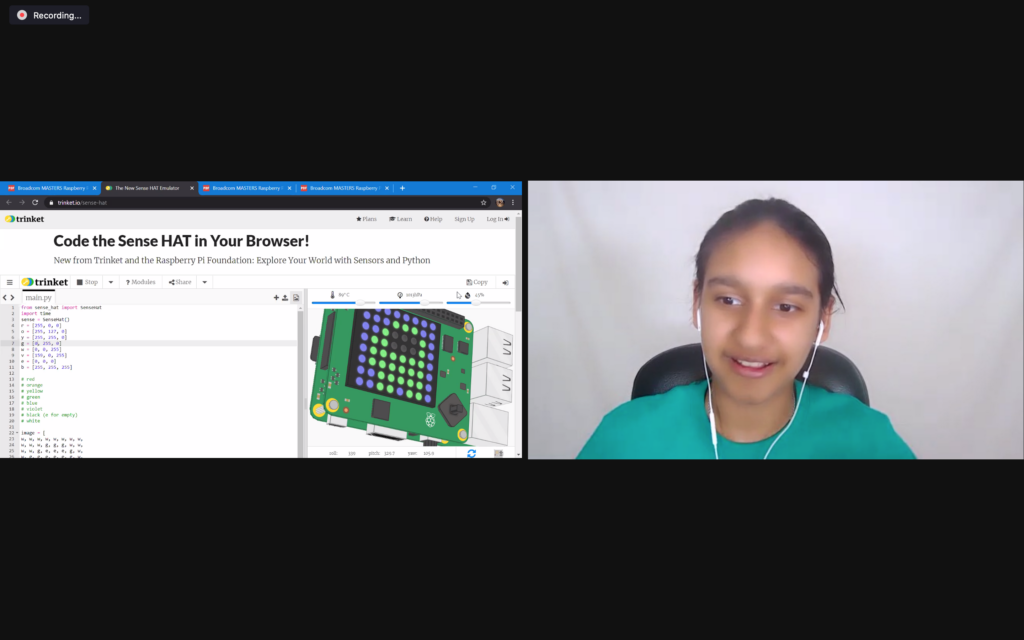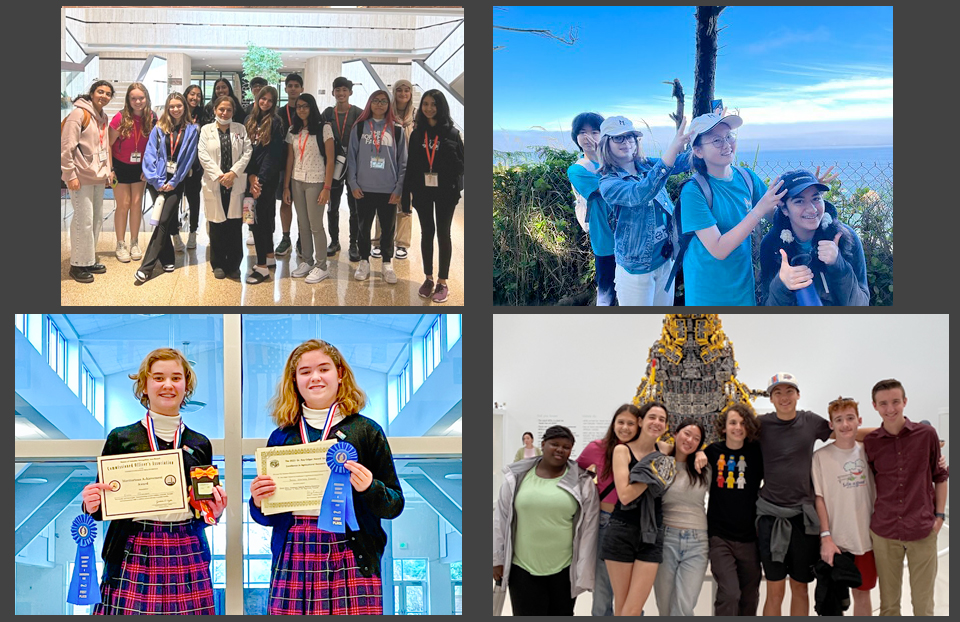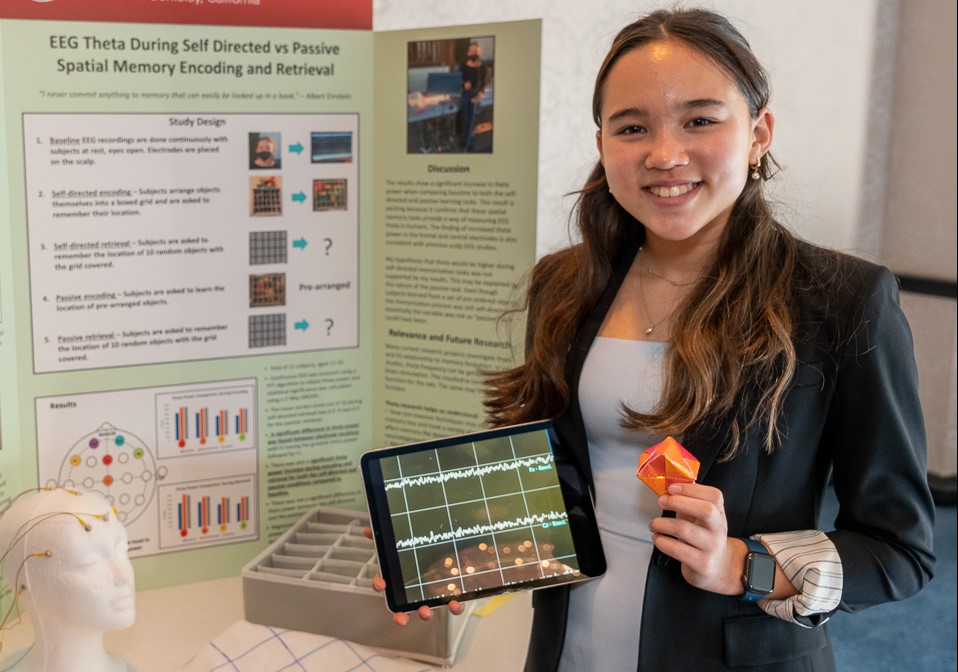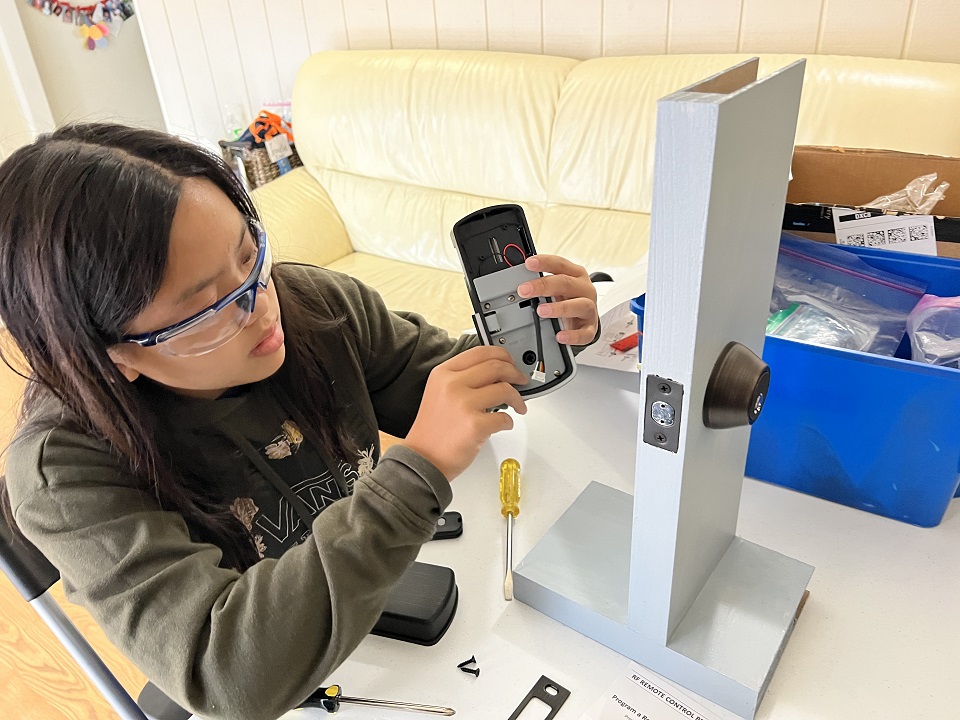Five Questions with Ishana Kumar, winner of the $25,000 Samueli Foundation Prize
How do we perceive different colors and see optical illusions? These are questions that fascinate people, as evidenced by the internet’s buoyant debate five years ago over “the famous dress” — a dress that some perceived as black and blue while others swore it was white and gold. The 2020 version of a comparable debate was raised on Instagram by singer-songwriter, Billy Eilish, whose Nike shoes appear mint green or light pink, depending on whose looking.
Diverging perceptions of color and visual illusions have also captivated Chappaqua, New York middle schooler, Ishana Kumar, throughout her childhood. In her Broadcom MASTERS winning research project, featured on NPR and the Daily Mail, the 12-year old scientist used a nineteenth century optical illusion called the Benham’s disk to investigate how the brain processes imaginary colors, known as Fechner colors. When the disk is spun, the black and white top induces a viewer to see colored rings, a scientific mystery that remains unanswered over 100 years later. Ishana specifically researched whether retinal fatigue might change the colors perceived by her subjects. She had her subjects stare at a bright red, blue or green light, triggering retinal fatigue before returning to stare at the disk again. Then she recorded whether the colors each person saw were different than what was perceived before. She found that, “It is possible to change our perception of imaginary colors,” as the colors each person saw often differed after this exercise.
Ishana encourages her peers to follow their passions and explore questions they are interested in. She has demonstrated that young scientists can do research from home, and perhaps do it so successfully that they would go onto win $25,000 for their hard work. Despite this pandemic, Ishana worked with her family to design socially distanced trials from their home, specifically from the driveway and garage. She tells the Society, “For me, it’s really helpful to find people that you can talk to about anything and who will help push your ideas to be better. Even if it seems small, you can make a difference. And have fun with whatever you do!”
We had a chance to catch up with Ishana. Let’s hear more from her below.
Which sci-fi advancement do you wish we had by now?
Comedian Lewis Black said, “This new millennium sucks! It’s exactly the same as the old millennium! You know why? No flying cars!” I completely agree, but would want a flying car that is sustainable and green. I would really like being able to drive around and just skip over all the traffic. It would also be so much easier to go long distances and visit all the friends I made during Broadcom MASTERS. Sustainable flying cars could help us even further bridge geographic divides between people and make our world more interconnected.
What would you invent if you had all the resources in the world?
I’m really worried about climate change, so if I had all the resources in the world, I would invent a green source of energy that we could easily implement. Honestly, I think this is something that should have already been done a long time ago, and I think we never should have let ourselves be so dependent on wasteful sources of energy. I would try to change that and make clean, renewable alternatives to fossil fuels. Biomass and hydrogen fuel cells are two promising alternatives in which we could be investing much more.
What would you like to be most renowned for?
Breaking stereotypes. I do not think we should let societal expectations force us into doing things or keep us from achieving our dreams. I want to break stereotypes and follow my passions. I know lots of strong women who have come before me and broken stereotypes about women in STEM that have inspired me. I also want to break stereotypes to inspire the next generations of young scientists.
Given that Broadcom MASTERS went virtual this year, what about your experience surprised you the most?
Virtual bonding is hard, especially if you do not know the other people. But with Broadcom MASTERS, bonding with the other finalists was fun. We managed to get to know each other well. We talked all the time during the competition week. I was pleasantly surprised by how easy it was to become friends with the other finalists even though the competition was virtual. And the best part is that we are all still in touch!
What was your most memorable experience from virtual Broadcom MASTERS? And why?
I really loved the talent show. I knew that all the other finalists were really good at science, but it was amazing to see how incredible they were at so many other things as well! I enjoyed seeing everybody’s’ talents and felt like I got to know the finalists even better by seeing a new side of them.

Check out the 2020 Broadcom MASTERS highlights reel here.


